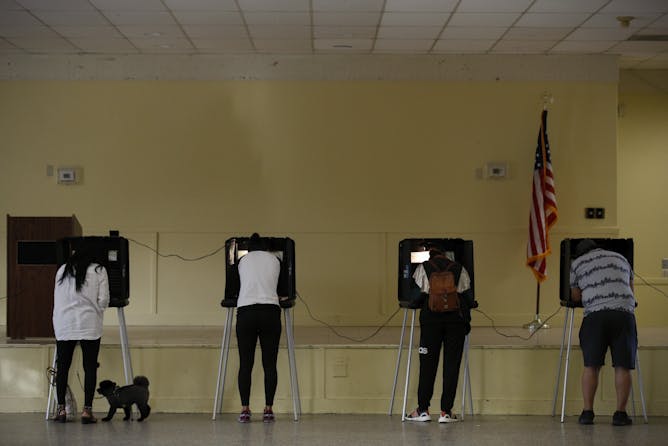|
Mass demonstrations rocked the country’s capital in a powerful protest against police brutality. Who were the demonstrators? Mostly young people. What was their demand? Disband the police.
This was Nigeria recently. Nigeria’s leader finally acceded to pressure and abolished the police force that was the reason for the demonstrations. It seemed like a people’s victory.
Read this week’s story on how that victory was quickly undone by Nigeria’s federal government – and the lessons that country’s conflict over police abuse provides for the United States.
In other stories, we’ve got an analysis of how the Electoral College gives more power to voters in smaller states and a tour of the new publication on the block, Substack, via the Penny Press, I.F.
Stone and the bad idea that news wants to be free, plus more good stuff from the Politics desk below.
|

A police officer in Lagos, Nigeria, Nov. 3.
Olukayode Jaiyeola/NurPhoto via Getty Images)
Samuel Fury Childs Daly, Duke University
The story of Nigeria's #EndSARS movement shows just how durable law enforcement institutions are – and why the road to reform goes straight uphill.
|

Florida voters, like these on Nov. 3, have less influence over the Electoral College than their fellow voters in any other state.
AP Photo/Rebecca Blackwell
John A. Tures, LaGrange College
The Electoral College ignores a key democratic principle: one person, one vote.
|